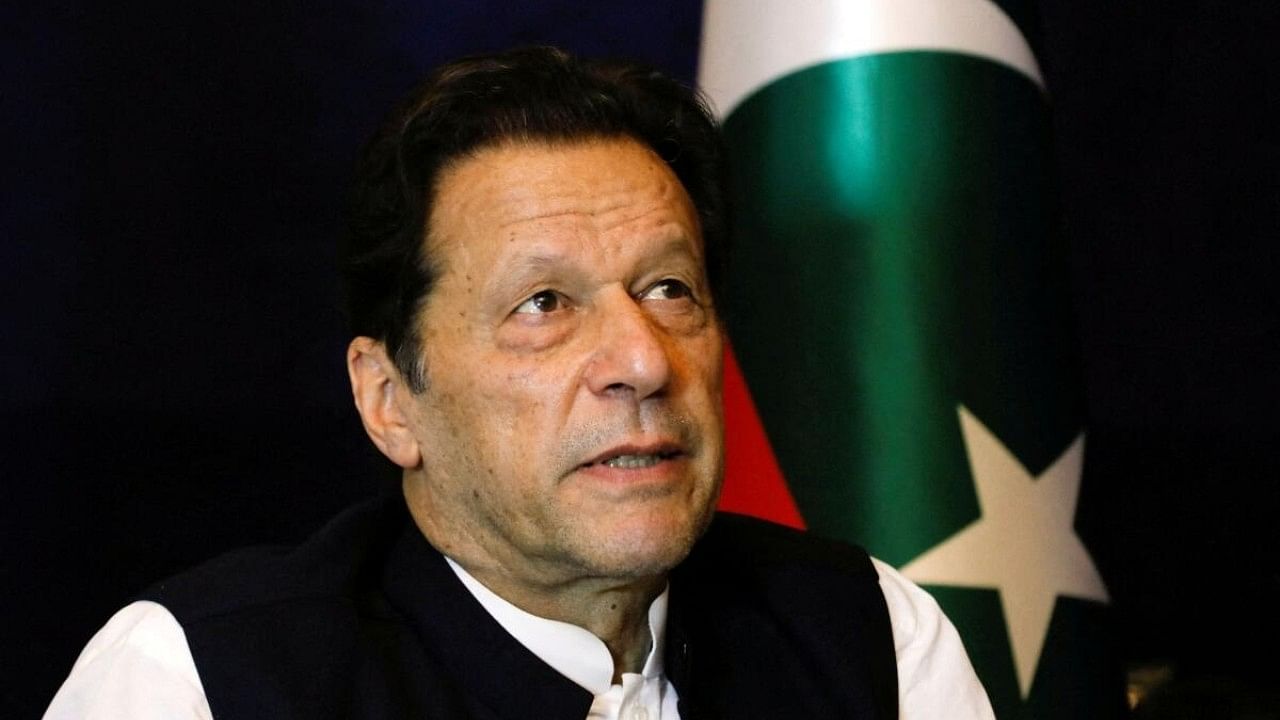
Former Pakistani Prime Minister Imran Khan.
Credit: Reuters Photo
Pakistan's Chief Justice Umar Ata Bandial on Wednesday said there were 'shortcomings' in the Toshakhana corruption case judgment convicting former premier Imran Khan and the Supreme Court would give its verdict after seeing the outcome of the hearing in the high court.
The Islamabad High Court is set to hear on Thursday a petition challenging the conviction of 70-year-old Khan, who was sentenced to three years in jail on August 5 by a session court.
The chief justice's observation came as a three-member special bench of the apex court headed by him and comprising Justices Mazahar Ali Akbar Naqvi and Jamal Khan Mandokhail heard the Pakistan Tehreek-e-Insaf (PTI) chief's pleas filed against the trial court's proceedings of the Toshakhana corruption case.
The bench observed that the verdict was given in haste and without giving the right of defence to the accused. "Prima facie, there are shortcomings in the trial court verdict,” the chief justice said.
However, the top court refused to give any order and said it would wait for the hearing of the case by the IHC and after that would hear the case.
"We will not interfere in the Toshakhana case today … we will look at the IHC hearing tomorrow and then resume the proceedings,” the court observed.
The proceedings in the apex court and the observation by the judges showed that Khan may get a big relief if his sentence was suspended by the IHC on Thursday.
During the hearing, the top court heard arguments by PTI lawyer Latif Khosa and Election Commission of Pakistan’s (ECP) counsel Amjad Pervaiz.
Khan's party in its reaction to the hearing in the Supreme Court said that the court has adjourned the hearing till 2 pm Thursday and the three-member bench will resume hearing after the proceedings at IHC.
"In remarks Hon'ble Judges noticed that the decision to impede by not allowing witnesses & conviction seems to have been reached at haste, prima facie," the party said.
It further stated that Pakistan Tehreek-e-Insaf is hopeful that the law of the land will prevail resulting in the release of Khan from incarceration.
On August 5, a trial court in Islamabad found Khan guilty of “corrupt practices” in a case pertaining to concealing details of state gifts and sentenced him to three years in prison. The verdict also means that he stood disqualified from contesting general elections for five years.
Subsequently, Khan approached the IHC against his conviction and sentence. A day earlier, the Islamabad High Court adjourned the case till Thursday.
During Wednesday's hearing, the apex court raised questions on the trial court's judgment awarding a three-year sentence to Khan in the case.
The three-judge bench asked the Islamabad High Court to consider the former premier's contentions about the trial court's jurisdiction, maintainability of the complaint and transfer of judges etc., tomorrow.
The bench also questioned the urgency shown by the trial court in deciding the case without recording the statements of the witnesses.
Justice Naqvi noted that the trial court defied the orders of the apex as well as the high court in passing the Toshakhana judgment.
The case was launched last year in October on the complaint of the Election Commission of Pakistan (ECP) which had earlier disqualified Khan in the same case.
The case alleges that Khan had “deliberately concealed” details of the gifts he retained from the Toshaskhana - a repository where presents handed to government officials from foreign officials are kept - during his time as the prime minister from 2018 to 2022 and proceeds from their reported sales.
According to Toshakhana rules, gifts/presents and other such materials received by persons to whom these rules apply shall be reported to the Cabinet Division.
According to reports, Khan received 58 gifts worth more than Rs 140 million from world leaders during his three-and-a-half-year stint and retained all of them either by paying a negligible amount or even without any payment.